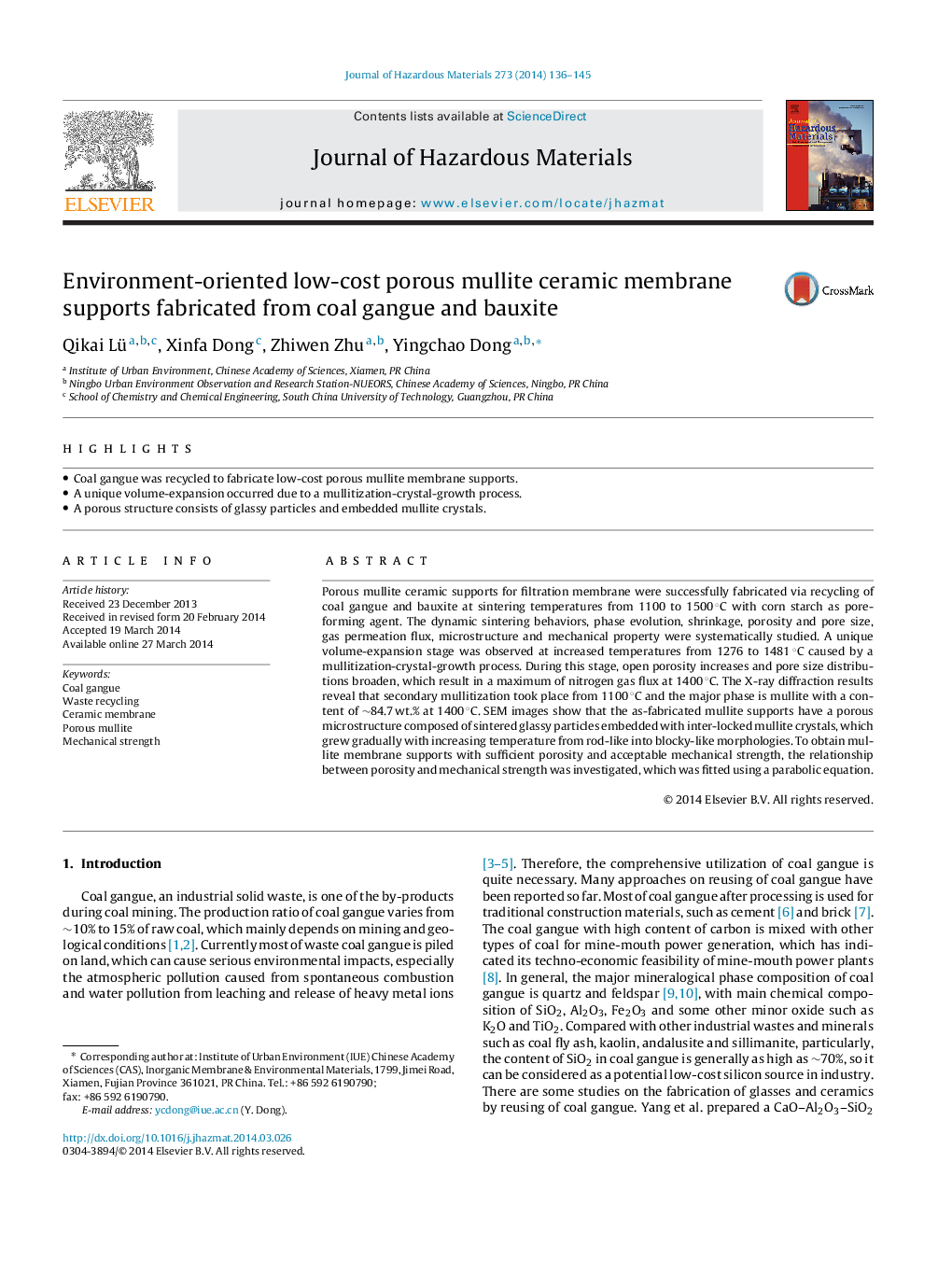| Article ID | Journal | Published Year | Pages | File Type |
|---|---|---|---|---|
| 576744 | Journal of Hazardous Materials | 2014 | 10 Pages |
Abstract
Porous mullite ceramic supports for filtration membrane were successfully fabricated via recycling of coal gangue and bauxite at sintering temperatures from 1100 to 1500 °C with corn starch as pore-forming agent. The dynamic sintering behaviors, phase evolution, shrinkage, porosity and pore size, gas permeation flux, microstructure and mechanical property were systematically studied. A unique volume-expansion stage was observed at increased temperatures from 1276 to 1481 °C caused by a mullitization-crystal-growth process. During this stage, open porosity increases and pore size distributions broaden, which result in a maximum of nitrogen gas flux at 1400 °C. The X-ray diffraction results reveal that secondary mullitization took place from 1100 °C and the major phase is mullite with a content of â¼84.7 wt.% at 1400 °C. SEM images show that the as-fabricated mullite supports have a porous microstructure composed of sintered glassy particles embedded with inter-locked mullite crystals, which grew gradually with increasing temperature from rod-like into blocky-like morphologies. To obtain mullite membrane supports with sufficient porosity and acceptable mechanical strength, the relationship between porosity and mechanical strength was investigated, which was fitted using a parabolic equation.
Related Topics
Physical Sciences and Engineering
Chemical Engineering
Chemical Health and Safety
Authors
Qikai Lü, Xinfa Dong, Zhiwen Zhu, Yingchao Dong,
